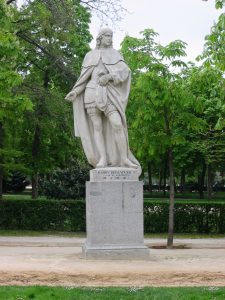The State and the Jews—Charters
In the north, charters emerged out of somewhat different circumstances. Here, rulers determined to lead their domains toward economic development that would enable them to close the gap between the older and better developed societies of the south and the young and vigorous societies of the north concluded that Jewish settlers, bringing with them economic expertise, would be a boon to the process of economic maturation. Thus, Bishop Rudiger of Speyer committed himself to attracting Jews to his town, in order to enhance its economy; he decided that the most effective way to entice Jewish settlers would be through offering them circumstances better than those enjoyed by Jews anywhere else in his region. At a later point in time, as the burgeoning principalities of eastern Europe sought to close the gap between themselves and their neighbors further westward, rulers in this area came to parallel conclusions, as reflected in the charter issue by Duke Boleslav of Greater Poland.
The interest of the lay authorities in fostering Jewish presence had a narrower and more self-serving focus as well. For the rulers of medieval western Christendom, the Jews offered rich taxation opportunities. Given the Jewish dependence on these rulers, tax demands were almost impossible to resist.
Images
Primary Texts
- Bishop Rudiger of Speyer, 1084 Charter
- Emperor Henry IV, 1090 Charter
- Count Raymond Berenguer IV of Barcelona, 1149 Charter
- Emperor Frederick I, 1157 Charter
- King Sancho VI of Navarre, 1179 Charter
- King Richard I of England, 1190 Charter
- King James I of Aragon, 1239 Charter
- Duke Boleslav of Greater Poland, 1264 Charter
- King Louis X of France, 1315 Charter
Secondary Literature
- R. Chazan, The Jews of Medieval Western Christendom (Cambridge- Cambridge University Press, 2006), 170-174 and 188-191.
Videos
What do you want to know?
Ask our AI widget and get answers from this website
